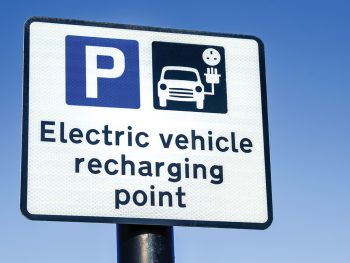Local authorities in the dark on fleet charging needs
Local authorities (LAs) in the South East are struggling to consult with communities on EV strategies, leaving them in the dark on charging needs.

Only 18% of local authorities in the South East had consulted with local businesses on an EV charge point strategy
Cornwall Insight and the Greater South East Net Zero Hub carried out a study on the readiness of LAs for the mass adoption of electric vehicles, conducted with 21 local authorities across the region.
The results showed that only 18% had consulted with local businesses on an EV charge point strategy, while only half had spoken to local residents.
The results suggest many LAs will face difficulties on understanding future demand for charging points in their respective areas, something which will be critical in the development of strategies and ensuring fair access to charging for all consumers.
Although the rollout of public charging points has increased rapidly in England, take-up by local authorities has been mixed.
In its long-awaited Electric Vehicle Infrastructure Strategy published last year, the Government pledged to increase the UK’s charging network 10-fold to 300,000 public charge points by 2030, but made it clear it expects local authorities to support and deliver EV charge points. It’s considering taking pre-emptive powers to put a statutory obligation on them to develop strategies and oversee delivery. A consultation on this is expected in 2023.
To support local authorities, the DfT launched its Local Electric Vehicle Infrastructure (LEVI) pilot last year, which has now been expanded and joined by the LEVI Capability Fund to help LAs scale up charging plans.
But Cornwall Insight’s research finds that engaging with local communities is often time- and resource-heavy for LAs and many face hurdles in their creation of EV plans. More than half (53%) of respondents surveyed indicated that they do not have an electric vehicle charging infrastructure strategy in place and 17% of these said they were yet to consider developing a strategy. Cost was identified as the primary barrier to developing a plan, while grid capacity and staffing were also cited as obstacles – all of which were identified in Liberty Charge research last year.
It is hoped the results of this survey will help the Greater South East Net Zero Hub – one of five Net Zero Hubs across England – address barriers to the rollout of EV charging infrastructure in more detail, prioritise how best to support EV charging projects and share valuable lessons learned.
Katie Hickford, senior analyst at Cornwall Insight, said: “While the shortage of charge point strategies in many local authorities in the South East is concerning, it is the obstacles faced by LAs in their ability to engage with local businesses and residents that need addressing in the first instance. After all, if you don’t know what the demand will be, how are you supposed to plan for it?
“By engaging with businesses and residents, LAs can ensure that infrastructure meets the needs of the community, promotes the adoption of EVs, and contributes to a cleaner, more sustainable future.”
But she also said industry support for LAs was crucial to help them understand demand and roll out charge points at pace.
Hickford added: “Government support such as the updates seen last week to the LEVI scheme will also be vital to LAs, as well as best practice and knowledge sharing amongst LAs themselves.”












